
Sustainability in Research: Training the Next Generation of Global Surgeons
The road to modern medicine is paved by those who seek the knowledge and skills necessary to reduce human suffering. In the Duke Department of Surgery, faculty and trainees are encouraged to pursue that mission and take advantage of resources and research opportunities to do so in North Carolina and abroad.
Among those that see the need for medical research and intervention in countries abroad is Tamara Fitzgerald, MD, PhD, Associate Professor of Surgery in the Division of Pediatric General Surgery.
Dr. Fitzgerald and her research team frequently travel abroad to Uganda in search of ways to sustainably reduce human suffering caused by societal disparities.
Establishing a Partnership
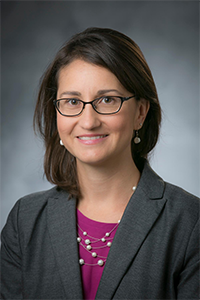
Associate Professor of Surgery
Division of Pediatric Surgery
“We want to do a project that has been identified by our Ugandan collaborators as something that’s important by partnering with them to improve their system or work on a research project that they deem important for their community,” says Dr. Fitzgerald. “Because the only way these research projects can be sustainable is if our colleagues in Uganda think it’s important. It doesn’t matter if only we think it is.”
During Dr. Fitzgerald’s surgical training, she knew that she wanted to pursue a career with a focus on global health. When she traveled to Uganda in 2013 for the first time as a Yale Pediatric Surgery Fellow, her academic interest in global health expanded.
While in Uganda, Dr. Fitzgerald and a cohort comprised of other pediatric surgeons from around the United States worked with the only Ugandan pediatric surgeon. At the time, Uganda didn’t have a formal fellowship program.
“I’ve tried to create a space where people who have an interest in global surgery can be exposed to it. Providing such a space where they can seek those opportunities is key.”
- Dr. Tamara Fitzgerald, Associate Professor of Surgery
Over the course of the next several years, the cohort worked with that one Ugandan pediatric surgeon to develop a pediatric surgery fellowship program, accredited by the College of Surgeons East, Central, and Southern Africa, for Ugandan fellows to be trained as pediatric surgeons. Since its establishment, numerous fellows have been trained for pediatric surgery.
Expand Training Opportunities
Dr. Fitzgerald’s early surgical training experience in Uganda opened her eyes to the scarcity of physicians conducting global surgery, leaving her and her colleagues with limited mentors. With an interest in creating such opportunities, Dr. Fitzgerald joined Duke Surgery in 2017 to work with and bring Duke medical students and trainees to Uganda.
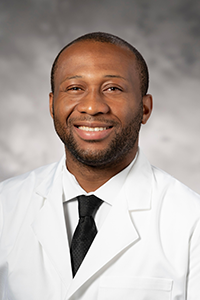
General Surgery Resident
“Improving care in Sub-Saharan Africa, specifically Uganda, has been a big passion of my life and I want trainees to be able to have those experiences,” says Dr. Fitzgerald.
“I’ve tried to create a space where people who have an interest in global surgery can be exposed to it. Providing such a space where they can seek those opportunities is key.”
By creating such a space, Dr. Fitzgerald welcomed General Surgery residents Shannon Barter, MD, and Anthony Eze, MD, as mentees in her lab, allowing them to address their own clinical research initiatives in Uganda.
Originally from Nigeria, Dr. Eze discovered an interest in medicine, specifically surgery, when missionaries came to his hometown to help provide clinical care. This exposure led Dr. Eze to Duke Surgery where he could train as a global surgeon.
“I heard about Dr. Fitzgerald’s work, and it resonated with me because one of the big challenges in global surgery work is the dependence on donated surgical supplies that quickly run out,” says Dr. Eze, who was awarded the 2023 Duke Surgery IDEA Scholarship, a fellowship that enables residents to dedicate time toward projects that address inequities influencing surgical practice, and the 2024-2025 AAS/AASF Global Surgery Research Trainee Fellowship.
“Dr. Fitzgerald’s work not only focused on delivering free clinical care to Ugandan patients, but also on making sure that physicians can continue to take care of patients in Uganda with locally made supplies. Our approach to global surgery in this lab is not to reinvent the wheel, but to ensure that our friends in low-and middle-income countries have access to a functional wheel of comparable quality that can be locally made and maintained”
Dr. Barter, who was awarded the Surgical Education Research Fellowship in 2023, took an interest in global surgery while in medical school at the University of Virginia School of Medicine (UVA), during which time she went to Rwanda to design a research education course for Rwandan residents.
“I really like bringing education, global health, and global surgery together,” says Dr. Barter. “What I love about working in Dr. Fitzgerald’s lab is that it’s interdisciplinary, working with students of all levels both here and in Uganda.”
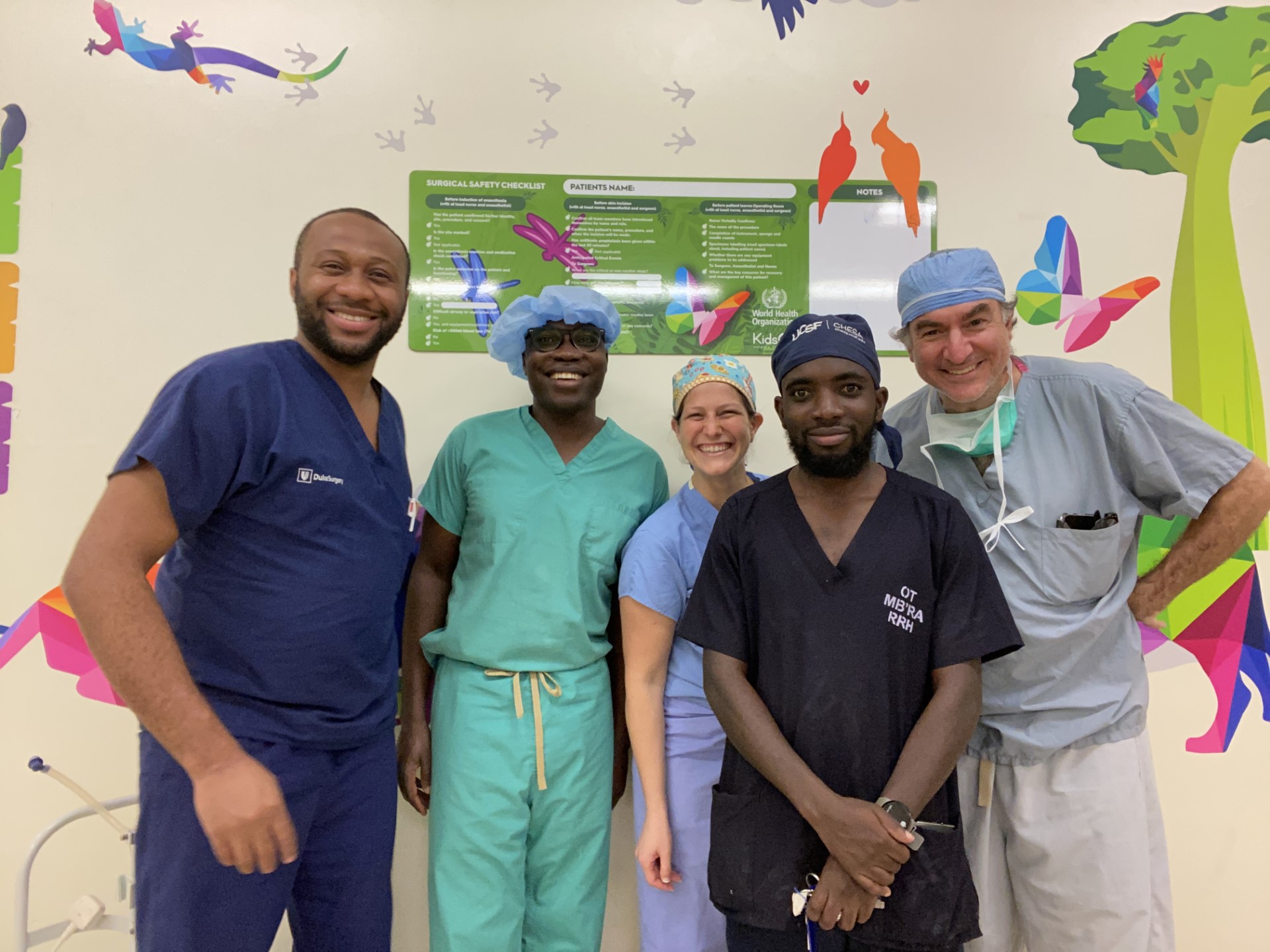
Resident Research in Uganda
As General Surgery residents, Drs. Barter and Eze must focus two of their training years on surgical research. After joining Dr. Fitzgerald’s global team, they worked with the Ugandan pediatric surgeons to develop projects that would not only be the most beneficial for the Ugandan community, but also the most sustainable.
Dr. Fitzgerald, Ann Saterbak from the College of Engineering, and Anne Wesonga from Mulago Hospital in Uganda, have been working on developing low-cost, locally manufactured silos for the survival of newborn babies with gastroschisis in Uganda. In the U.S., silos are usually placed by pediatric surgeons, but in Uganda, babies are born several hours away from the nearest pediatric surgeons.
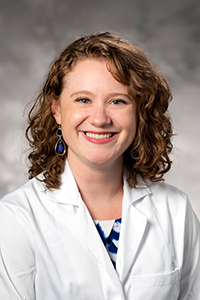
General Surgery Resident
Therefore, they intend to establish a training course to leverage the services of midwives and nurses who not only are the first point of contact for these babies, but vastly outnumber pediatric surgeons and makeup 50-60% of the health care force in Uganda. The training teaches midwives to apply the silos, which will stabilize the baby so that the bowel will be protected and they will not become dehydrated as they are making the long journey to the hospital. This will hopefully improve the survival of these babies.
“We will keep working on this project until we can get the silo product to the market to ensure that newborn babies in Uganda can have access to the proper supply,” says Dr. Eze.
For Dr. Barter, her research initiative is part of a larger project that aims to develop a low-cost laparoscopic system manufactured in Uganda. This system includes a laparoscope and an abdominal lift retractor that will allow Ugandan surgeons to effectively perform laparoscopy with only a few key surgical tools.
Dr. Barter will focus on the surgical education side by developing a much-needed training program on laparoscopic surgery that Ugandan surgical residents lack due to limited resources.
“The real reason we’re here is to reduce human suffering and that certainly does not end within the walls of the hospital based outside of our communities.”
- Dr. Anthony Eze, General Surgery Resident
A major requirement of the initiative is the development and testing of a sustainable laparoscopic box trainer, a surgical training device to develop the psychomotor skills and dexterity required for basic laparoscopic surgery. These new devices will be manufactured using the resources available in Uganda. Once fully developed, a surgical training course will be designed around the box trainer to give Ugandan residents introductory experience on using laparoscopic surgical tools.
“Right now, another way for Ugandans to get laparoscopic training is to travel outside of the country for a time intensive course, like in India, Canada, or in parts of the United States, which is very expensive and unachievable for most surgeons in Uganda,” says Dr. Barter. “Being able to provide that same resource while supporting an infrastructure with the capacity for that is really important to me and what has inspired this project.”
The vital aspect for both projects is ensuring that both cost and skills can be replicated with the limited resources available in Uganda.
“Both of the projects involve working with the local biomedical engineering team,” says Dr. Fitzgerald. “We’re not building something here in the States and shipping it there. We are intentionally designing these tools to be made locally. That’s what makes it sustainable.”
Unexpected Roadblocks
Because of both projects’ necessary collaboration with the local biomedical engineering team and hospitals, both Drs. Barter and Eze must go through an approval process before their work can be greenlit for grants, testing, and research publication. However, sometimes certain roadblocks arise due to the global nature of the projects.
The first major roadblock is receiving approval from both the Institutional Review Boards (IRB) at Duke University and in Uganda. International projects always have more complicated ethical considerations, and there can be differences in cultural perceptions regarding the research methods. There are also clinical workforce shortages in Uganda, limiting the amount of time that IRB members have to review projects. This can lead to longer wait times for approval.
“It’s truly about collaborating in a mutually beneficial way with our Ugandan partners,” says Dr. Fitzgerald. “It’s important that we really meet a need that they have identified, and that everybody has a defined role in the project.”
Another challenge that they face is authorship for research publication. A standard convention in academia is that the first and last authors of a paper are viewed as the main contributors, which is often true in basic science research. With global health research, various people come to the table from all over the world and bring in multidisciplinary viewpoints meaning that everyone on the team is contributing and learning from each other.
“If we publish papers where I am always the senior author and one of our Duke trainees is the first author, and never allow any of our Ugandan partners to be first or senior authors—that’s a form of colonialism,” says Dr. Fitzgerald. “But if we publish a paper where we’re not the first or senior author, then we run the risk of not getting credit in the university system for the hard work that we’ve put in. When a Duke trainee applies for a fellowship position, I want that other university to recognize all of the work they have done, which is usually communicated by a first author publication. But I also want my colleagues in Uganda to get credit and promotion for all the work they have done. It creates difficulty for people doing global health to demonstrate to the university that we’ve done work on both sides.”
As for authorships, some journals will allow entering the names as joint first or senior authors. More institutions, like Duke, and journal publications are taking seriously these authorship challenges and have taken their own measures to ensure each person is credited fairly.
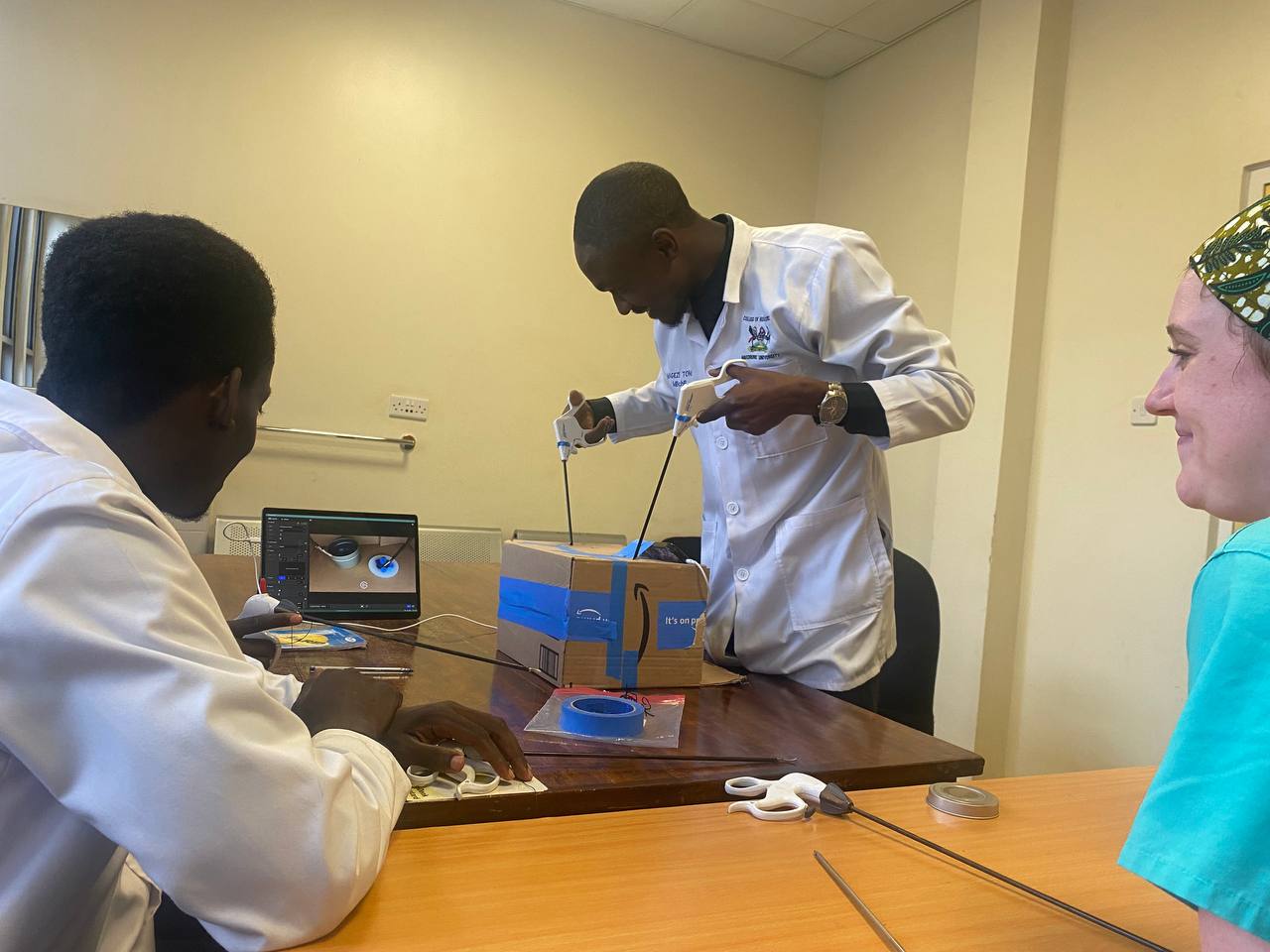
Why Global Surgery?
In a globalized society, many surgeons like Drs. Barter, Eze, and Fitzgerald will continue to travel abroad for opportunities to make a difference. While there certainly are health disparities here in the US, it is important to recognize just how wide the disparity is in countries like Uganda.
“Anybody who has been to Africa and has actually seen how severe the disparities are will find it impossible to ignore,” says Dr. Barter. “It’s at an order of magnitude that’s not even comparable. As doctors, we really do have to pay attention, and not a lot of people will.”
As physicians and surgeons, it is important for the team to be mindful that each trip abroad is not just an opportunity to deliver care. The motivation for the global work they do is to address human suffering, which means getting out of one’s comfort zone to ensure that everyone, regardless of their origin, has access to the same level of care wherever they are.
“The real reason we’re here is to reduce human suffering and that certainly does not end within the four walls of the hospital or within our local communities,” says Dr. Eze. “It is outside of the United States as well and we need to make sure that we’re invested in not only delivering care in terms of clinical care, research, or advocacy, but are also ensuring that, just like what Dr. Fitzgerald is doing, we are training the younger generations to keep doing that necessary work in a collaborative manner.”